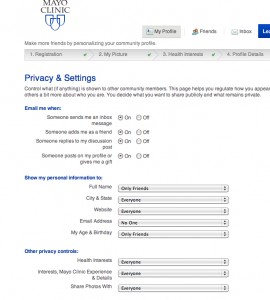Folks from Zerodha and ERPNext organized the conference IndiaOS (india open source) conference in Bangalore. IndiaOS brought together the open source projects originating in India and also the supporters of these projects. Here’s a quick summary of what I saw and what I hope to see in the coming editions of IndiaOS.
- The frappe framework is an open source framework used by ERPNext and Zerodha. ERPNext which is also an open source ERP built using Frappe framework. I was not aware of this framework until this event. I will certainly use this framework for my future projects knowing that the community is right here.
- Dr. Kailash of Zerodha also spoke about their usage of FOSS. It was impressive to see their commitment to FOSS. Here is a tweet with information about their tech stack.
Some interesting #FOSS insights from @zerodhaonline at #IndiaOS pic.twitter.com/32ntjqv63O
— Gangadhar Sulkunte (@gangadhargs) January 18, 2020
- Handwriting recognition for Malayalam: This is a project by Indic Project. They have built handwriting recognition software for the Malayalam language. They are looking for contributors to extend this to more Indian languages.
- The story of how volunteers used open source software during the Kerala floods to coordinate the rescue efforts. The entire backstory is available here.
- The last talk of the day was by Apar Gupta who opened up the definition of open to include internet freedom. This entire post was inspired by his talk. He spoke about the work of the internet freedom foundation. He wanted us to look at the issue of internet blockages in India and how it affects democracy.
- A Malayalam newspaper which publishes their paper completely using open source software. They have made a lot of open source contributions themselves. Here is a tweet that shows their before and after tech stack.
When you see the before and after tech stack of Janayugam (newspaper in Kerala), their journey to FOSS is very impressive. #IndiaOS pic.twitter.com/j7GRou6rO1
— Gangadhar Sulkunte (@gangadhargs) January 18, 2020
After listening to the talks and the energy in the room, I felt that this event was a huge success. The folks who attended the event were also folks who are doers and optimists who want to make a difference. In this spirit, I feel that the next event should include talks from these folks (or folks who can cover these topics):
- Open Hardware: There was a talk about open hardware at IndiaOS. Next time, we should have some workshops covering the open hardware movement with hands on sessions.
- Open Communications: This was covered well by Apar in his presentation. We should include work around amateur radio and mesh networks which can help continue communications during times of internet blockade. This is also very much in tune with the times since internet blockade seems to be everywhere. Workshops on Ham Radio and mesh networks will help people to communicate at times of internet shutdowns.
- Freedom and Society: This is a broad topic but I feel we should include folks like Meera working on good local journalism at Citizenmatters. Then there is the Citizens for Bengaluru, which is getting folks involved with working with government at the local level. Also should include folks like Capt. Manivannan who is working to get the government to be open in their communication and work with the public.
- Open Data: Here we can do these kinds of talks:
- Folks like Thejesh and Datameet are working towards open data. I feel we should include them to get conversations and workshops around getting our data out from the clutches of government and commercial entities.
- Folks who have done good work on identifying data surveillance and also on how to protect yourself. For eg., Abhay Rana (aka CaptNemo), who has written extensively on how to protect yourself from the extensive surveillance. His blogpost alone is can be a half day workshop!
- Folks who are working on freeing content from DRM. The lead developer for the open source ebook library Calibre is from Mumbai. It will be interesting to hear about his journey.

 Follow
Follow